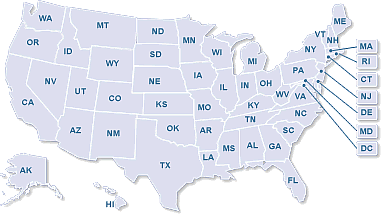Virginia foreclosures can be either judicial or non-judicial, depending on the mortgage involved. If it contains a Power of Sale clause, the lender can pursue a non-judicial foreclosure outside of the court's supervision. Any other scenario calls for a judicial foreclosure. In this case, the lender files against the homeowner in court. The court holds a hearing on the matter, and if it rules against the homeowner, a foreclosure sale of the homeowner's property will be scheduled. Judicial foreclosures are rare due to the prevalence of Power of Sale clauses.
To begin a non-judicial foreclosure, the lender must first issue a Notice of Default to the homeowner informing them of the debt owed and the impending foreclosure if payment is not received within thirty days. If this time period expires, the lender may schedule a foreclosure sale to regain the amount of the loan.
The homeowner can stop either judicial or non-judicial foreclosures by paying off the default amount owed at any point before the sale ends.
To advertise, the lender must publish a Notice of Sale in a local weekly newspaper for a number of weeks specified by the court or mortgage agreement. The homeowner must receive a copy of the Notice at least 14 days before it is to occur. A sale cannot be postponed but may be cancelled and rescheduled.
On the sale date, a trustee of the lender auctions off the homeowner's property to the highest bidder. Once the winning bidder provides payment, they assume full ownership. If there are no bids, the property goes to the lender.
There is no right to redemption for the original homeowner once a sale is completed. The lender is allowed to seek a deficiency judgment against the homeowner.



 Versión en Español
Versión en Español 

Social Bookmarks